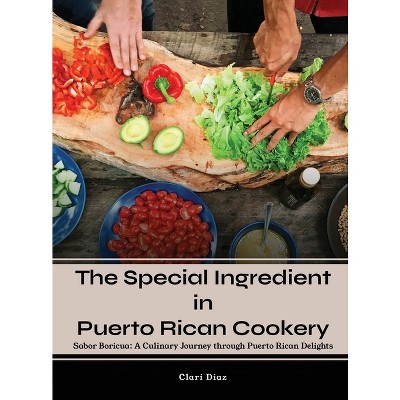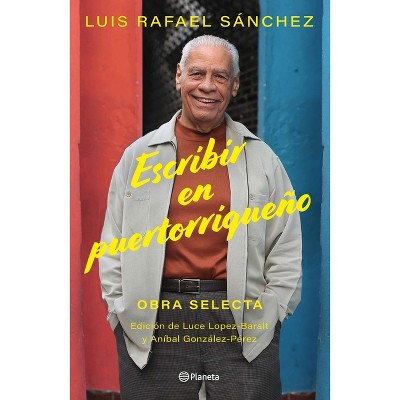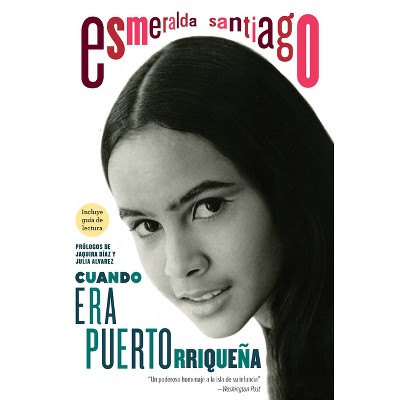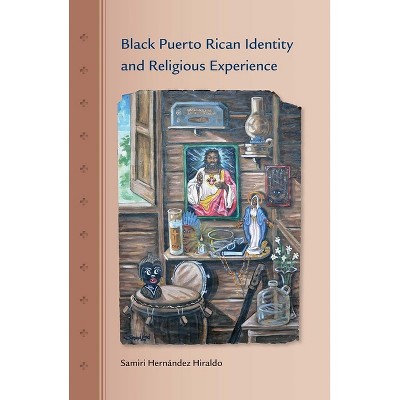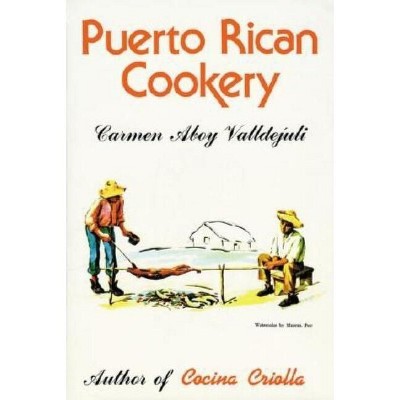Sponsored

Puerto Rican Citizen - (Historical Studies of Urban America) by Lorrin Thomas (Paperback)
In Stock
Sponsored
About this item
Highlights
- By the end of the 1920s, just ten years after the Jones Act first made them full-fledged Americans, more than 45,000 native Puerto Ricans had left their homes and entered the United States, citizenship papers in hand, forming one of New York City's most complex and distinctive migrant communities.
- About the Author: Lorrin Thomas is associate professor of history at Rutgers University, Camden.
- 368 Pages
- Social Science, Sociology
- Series Name: Historical Studies of Urban America
Description
About the Book
Thomas's study is a sophisticated contribution to scholarship on citizenship and race, her chapters also provide detailed portraits of the everyday ways that Puerto Rican migrants and their children fought against second-class status on the local and national levels: their neighborhood and labor activism, political lobbying, social service work, and radical political organizing. Following New York's Puerto Ricans through the struggles of the Great Depression, the optimism of the New Deal, the renewed migration of the postwar years, and the activism of the 1960s, Thomas provides the fullest portrait to date of the many ways that this community worked toward political visibility and empowerment over much of the twentieth century.Book Synopsis
By the end of the 1920s, just ten years after the Jones Act first made them full-fledged Americans, more than 45,000 native Puerto Ricans had left their homes and entered the United States, citizenship papers in hand, forming one of New York City's most complex and distinctive migrant communities. In Puerto Rican Citizen, Lorrin Thomas for the first time unravels the many tensions-historical, racial, political, and economic-that defined the experience of this group of American citizens before and after World War II.Building its incisive narrative from a wide range of archival sources, interviews, and first-person accounts of Puerto Rican life in New York, this book illuminates the rich history of a group that is still largely invisible to many scholars. At the center of Puerto Rican Citizen are Puerto Ricans' own formulations about political identity, the responses of activists and ordinary migrants to the failed promises of American citizenship, and their expectations of how the American state should address those failures. Complicating our understanding of the discontents of modern liberalism, of race relations beyond black and white, and of the diverse conceptions of rights and identity in American life, Thomas's book transforms the way we understand this community's integral role in shaping our sense of citizenship in twentieth-century America.
Review Quotes
"Written with simple elegance and brilliantly engaged with the politics of dignity and recognition, Puerto Rican Citizen represents an important achievement--one that I am convinced will assume its rightful place among the best examples of scholarship on Puerto Rican history, Latino studies, and the broader history of citizenship. Engaging the history of the Puerto Rican diaspora, as well as the literature of race, imperialism, and national citizenship, Thomas lays the groundwork for a much-needed reconsideration of the significance of Puerto Ricans in the social history of the United States. Puerto Rican Citizen is a powerful work of original scholarship that should attract a broad audience among academic and general audiences alike."
--David Gutierrez, University of California, San Diego"Thomas' book has been justly praised. With the aid of multiple sources, from statistical data to oral accounts and personal records, she traces the often messy story of Puerto Ricans in New York City from the 1917 statute that made them U.S. citizens to the early 1970s."--Muniz-Arguelles, Luis "The Americas: A Quarterly Review of Latin American History"
"In this insightful, well-written study of Puerto Rican New York City, Thomas provides perhaps the best study of Puerto Rican political mobilization, migration, and politics in the post-WWII US to date."
-- "Choice""Lorrin Thomas's book is an extremely well-researched, clearly written, and impressive account of the struggle of Puerto Rican migrants and their offspring to take advantage of their status as U.S citizens to gain political, economic and social rights in the complex racial and ethnic landscape of New York City in the twentieth century. Thomas utilizes a vast array of archival materials, oral histories, community newspapers, and social science reports to chronicle this struggle, while vividly describing the radial logic and liberal ideology that avoided the implications of the U.S. colonialism in the Caribbean to increasingly and consistently place Puerto Rico on the 'foreign' side of the immigrant spectrum despite the 1917 law granting them U.S. citizenship. This is an original and sensitive volume that will be important addition to the growing scholarship on Latino history, appealing to a wide audience of scholars and students alike. I believe this book will become the standard work in the field, likely to be used throughout the nation for years to come to understand the Puerto Rican experience in the most important city of migration."--George Sanchez "University of Southern California" (8/28/2013 12:00:00 AM)
About the Author
Lorrin Thomas is associate professor of history at Rutgers University, Camden.Shipping details
Return details
Trending Non-Fiction






Discover more options

